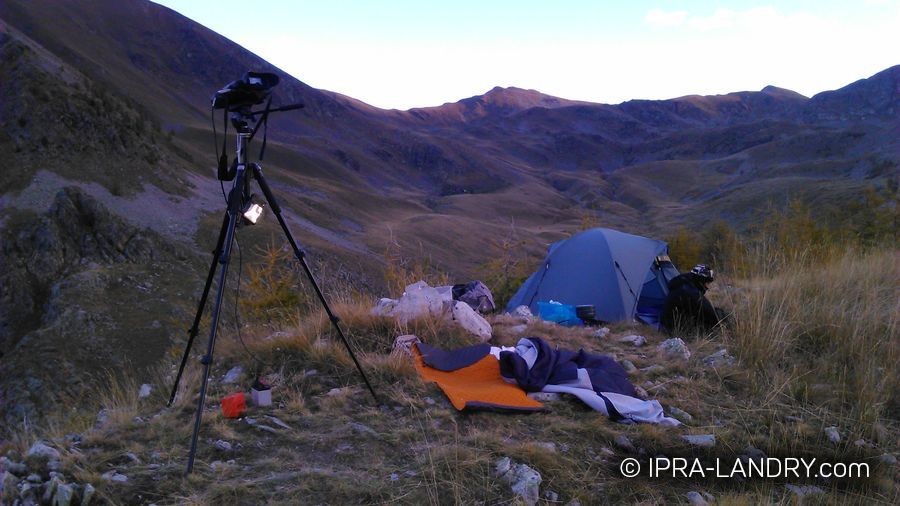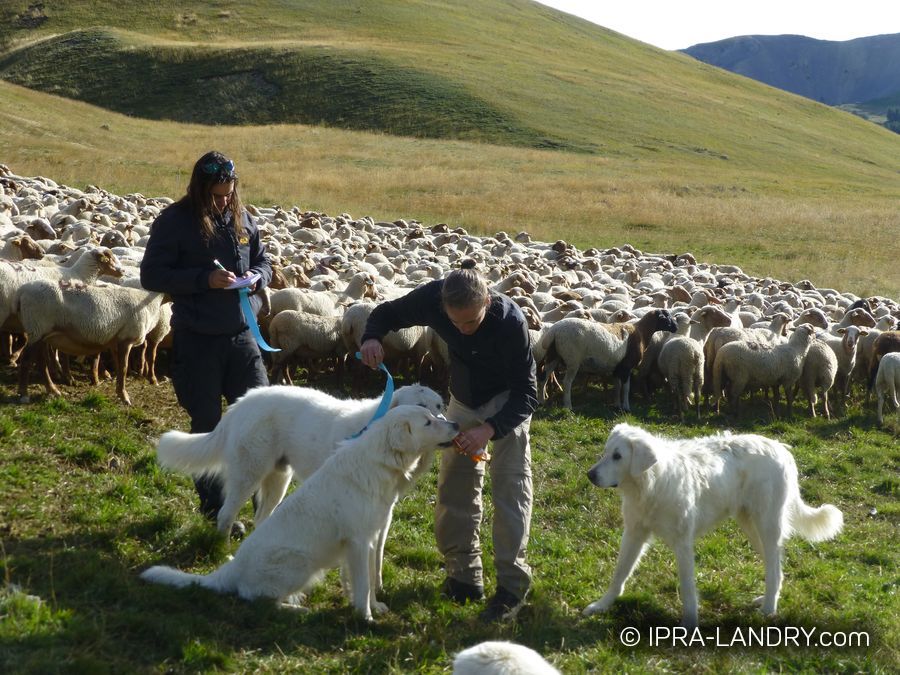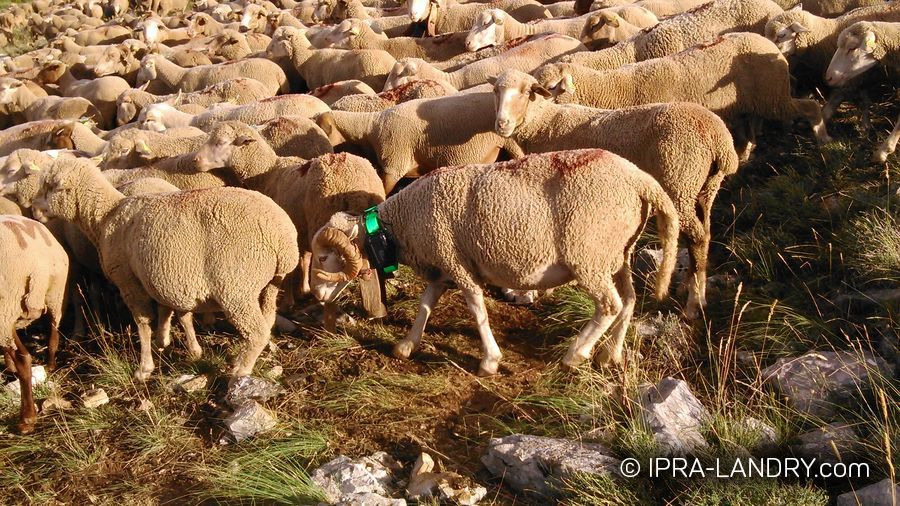Method of the CanOvis project
Organisation of field operations
Monitoring operations (sessions of several consecutive days) follow on one from another over the course of the pastoral season and “current predation” on a selection of pilot sites (PUs).
These fieldwork sessions enabled:
- LGD behaviour monitoring : individual behaviour, relationships within the pack of dogs and behaviour in their environment; interviews with the livestock breeders who own them and the shepherds who use them.
- GPS monitoring of LGDs and flocks : analysis of night- and daytime animal movements.
- Monitoring of wolf-flock-LGD interactions : night-time viewing using infrared equipment – night-time hides close to where the flocks sleep.
- Reading of the contextual and circumstantial parameters : topography, weather, pastoral activity, etc.
- A collection of testimonies and experiences of partner livestock breeders and shepherds.
Rationale for the analysis
Close observation of pastoral systems and flock-protection plans provides information on the reality of wolf-flock-dog relationships and, in particular, enables analysis of LGD behaviour while working, and of wolves’ habits and behavioural responses.


